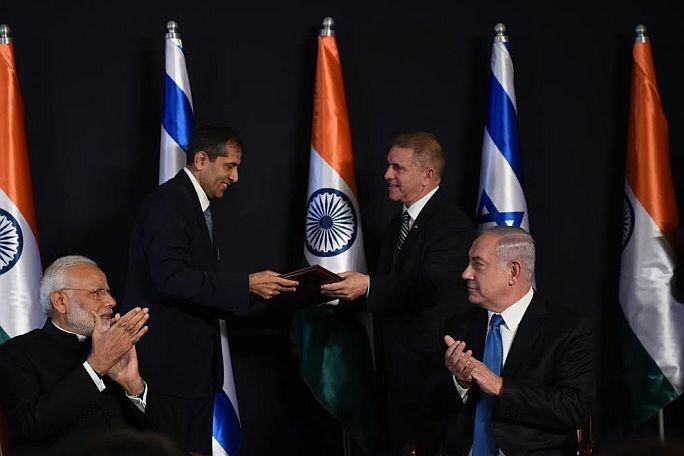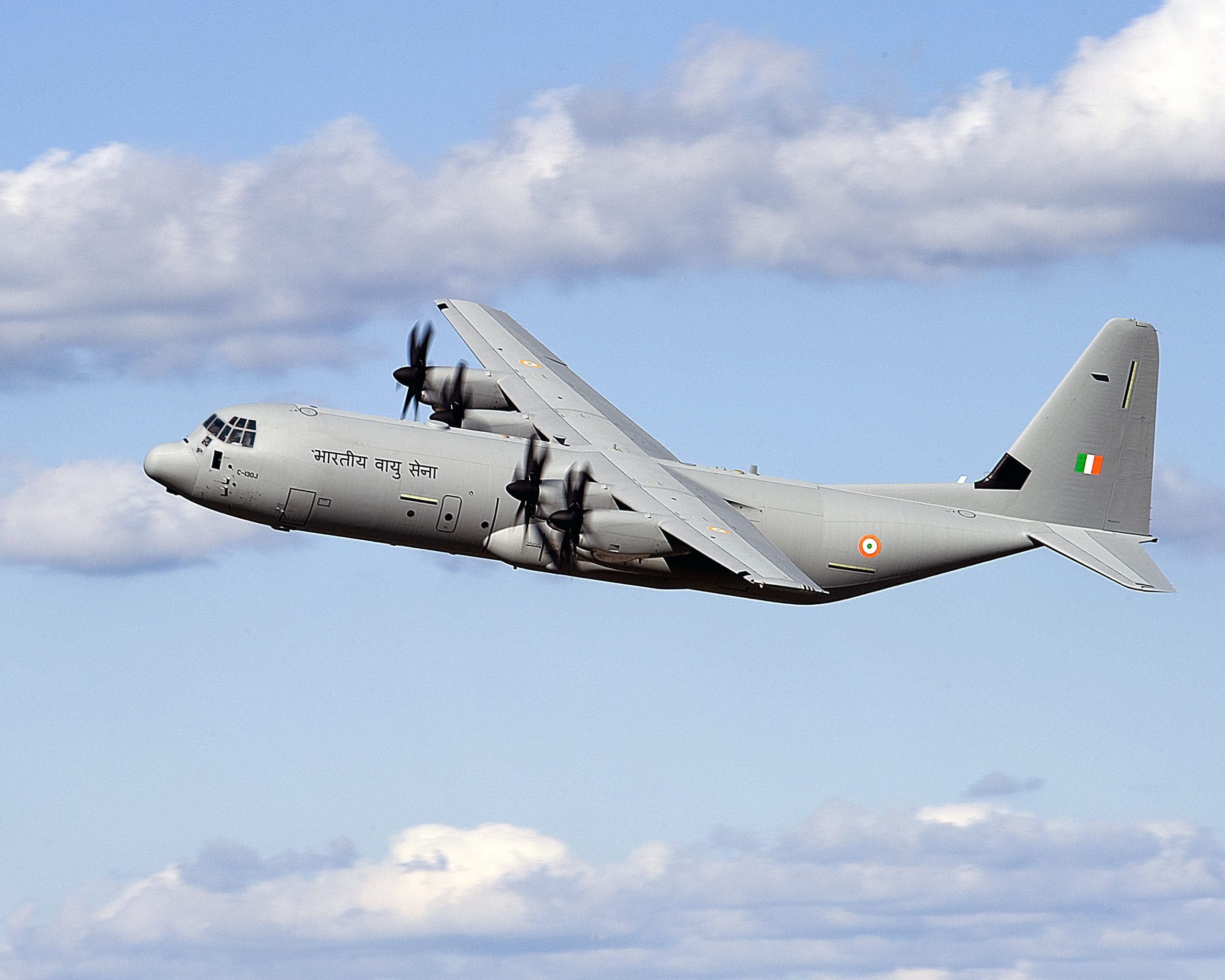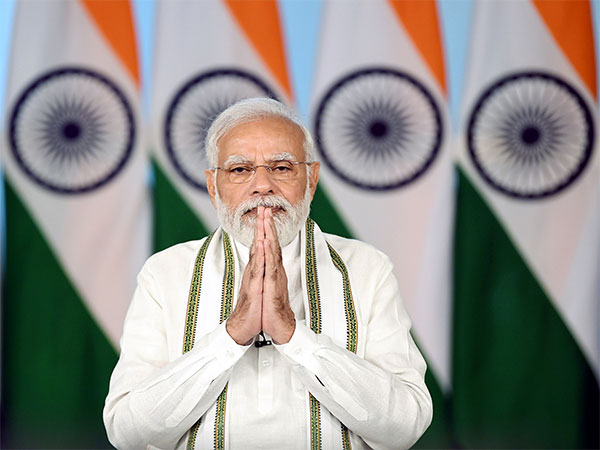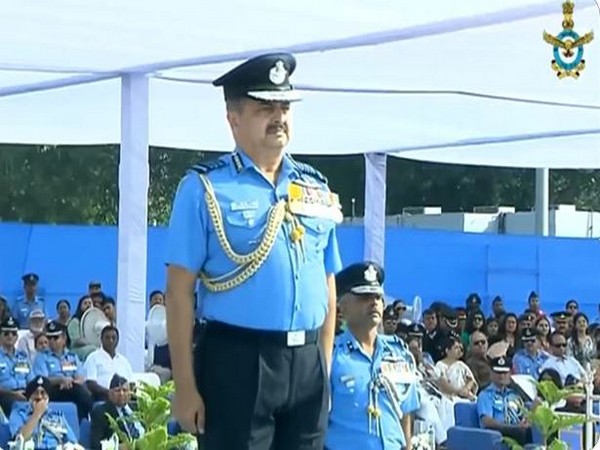
India Israel Relations – An Overview
Sat, 20 Mar 2021 | Reading Time: 6 minutes

India-Israel relations have always been an ongoing topic for academic research and journalistic reporting, as well as a fascinating experience for practitioners. Many generations of diplomats, scholars and reporters have witnessed the unique story of the Indo Israeli journey. As a young diplomat, during the early 1970s, I was attracted by what promised to be a special partnership but lacked, at the time, political feasibility. I thus felt privileged, years later, as Ambassador to India, to contribute to the long chain of dedicated diplomats from both the countries, who brought our relations to where they stand today.
Trade between the Jews and the Indians dating hundreds of years ago, the fact that Jews were always welcome in India, never suffering from racism or discrimination were the first threads in the fabric of today’s special relations between the governments and peoples of India and Israel. Both the nations also have much in common, with shared democratic values and interests, as two relatively young societies, proud of their respective historical, cultural roots, eager to embrace the future, innovation and technology.
While India officially recognized Israel in 1950, it took four more decades until a suitable political atmosphere and political will, allowed the recognition to be translated into diplomatic relations. A ‘wind of change’ reshaping global, regional and national paradigms, also led to a new global approach to Diplomacy. The stage was thus set for 1992 to be a turning point in the emerging relations between both the nations.

Looking back at the past 29 years, two notable trends come to mind in the Indo Israeli relations: Visibility and Scope. When full diplomatic relations were established, they were kept low-key, with a conveniently, discrete emphasis on Defence. The “zero sum game” perception prevailing at the time in many Non-Aligned Movement (NAM) capitals, including New Delhi, avoided admitting publicly good relations with Israel and the Arab world at the same time. As a leader of NAM, Delhi opted to stick with the Arab countries (NAM members by themselves). This “arrangement” did not last beyond the Cold War era, as the rationale behind the low-key approach was no longer acceptable, relevant, or needed. The low-volume relations paradigm slowly shifted by the end of the 1990s. It was dramatically replaced in 2014, when the Indian Government adopted a landmark “De Hyphenation” (or “No Zero Sum Game”) policy toward West Asia: Shortly after coming to power, on July 21, 2014, the Government of India’s External Affairs Minister (EAM), the late Sushma Swaraj, stated in the Parliament, that while continuing to support the Palestinian cause (which was the overriding policy element until then), India maintains good relations with Israel. This dramatic public departure from previous policy has since been reiterated numerous times by various Indian officials, in words and deeds. Dramatic as it was then, this new approach has since become part and parcel of our relations, as acknowledged recently by EAM, Dr. Jaishankar, speaking at the opening session of Israel’s Ambassadors to Asia-Pacific Annual Conference, “the (India Israel) relationship finally enjoys the stature and visibility it deserves”.
Normalizing relations meant a wider scope of political dialogue between the governments, a more diverse bilateral agenda, including on India’s traditional voting patterns on anti-Israeli resolutions at the UN, amongst others. To ‘cement’ the normalization of the relations and signal their importance, reciprocal gestures were made in the form of high level, high profile visits. Indian Home, Agriculture and External Affairs Ministers and numerous States’ Chief Ministers visited Israel, reciprocated by visits to India by Israeli Ministers of Defence, Science and Technology, Economy and Agriculture. Relations, almost nonexistent three decades ago, were officially elevated to “Strategic Partnership” on the background of the historic, reciprocal Presidential and Prime Ministerial visits (2015-2018). This partnership touches core issues such as Agriculture, Water, Homeland Security, Cyber, Science and Technology, Innovation, Healthcare, Space, Trade, Commerce and Industry, and a continuously excellent Defence Cooperation. From a “behind the scenes” engagement between governments only, relations have become an open dialogue between the governments, public sectors, private sectors, and civil society. An increasing number of Israeli tourists of all ages visiting India, together with a growing number of reciprocal academic, cultural and business exchanges add momentum to the People to People bond between both the nations.
Bilateral trade grew from $200 million in 1992 to a peak of more than $4 billion in recent years (excluding Defence). True, Indian and Israeli economies are incomparable, but they do complement one another. Israel has proven to be one of India’s technological partners, and was also among the first countries to embrace “Make in India”, with factories producing Israeli technology-based products in the fields of defence, agriculture and more.
India hosts and partners Israel’s largest overseas agricultural project. MASHAV, Israel’s Agency for International Development Cooperation, partners India’s MIDH with 29 fully operational Centers of Excellence (CoEs) spread across the subcontinent. This unique partnership offers farmers capacity building tools, access to Israeli knowledge and agro-tech, facilitating more yields, with better quality, diversity and price. The project is currently expanding to include more CoEs, in more Indian states. Planned also is a new concept of dozens of “Villages of Excellence”, around existing MASHAV farms.
In the recent years, a new partnership is developing on water management. It paves the way for multi-discipline Israeli water technology to reach India and be part of revolutionizing its water sector, offering more people better access to water.
Collaboration between the two countries, ranging from MASHAV agricultural CoEs, to sophisticated “Make in India” defence, drip irrigation and technological production (to name a few) to joint project using Israeli water technology (recycling, desalination, management), to Israeli satellites placed in orbit by ISRO, to the recent cooperation on the Covid19 pandemic, all, and more, demonstrate the depth, strength and confidence of the Growing Partnership between Israel and India. This unprecedented upgrade in our relations, not limited to Government to Government (G to G) initiatives only, is also reflected by a dramatic change in air connectivity (many more flights, significantly shorter flying time) between India and Israel, impacting all walks of life.
The India-Israel high level dialogue over the last six years also addressed taking our joint success stories to new areas and new heights. It included a wish to go beyond the bilateral sphere, impacting our respective neighborhoods. Recent developments in our region – West Asia – open doors for India and Israel, to build ‘geometric’ partnerships in areas such as food security or water, counter-terrorism, and of course, innovation and technology. India’s EAM has recently stated at INSS annual conference that “West Asia has witnessed remarkable events in recent months. The Abraham Accords have opened up possibilities that could not have even been imagined earlier”, referring to the potential for multifaceted cooperation. Indeed, the “Abraham accords” could and should be a good platform for that, as a three/four-way-pivot partnership between India, Israel and the relevant Gulf states. Success in this endeavor could serve other players to follow suit, bringing more prosperity to the peoples of our respective regions.
While strengthening their existing links, India and Israel should also be looking for new, creative, forms of cooperation. True, during the past 29 years, India and Israel have dramatically advanced their bilateral relations. But both of them also have a tradition of reaching out to developing countries, contributing aid, knowledge, capacity building and education through MFA’s Mashav and India’s MEA. Based on the success of their unique journey, both the countries could also expand their cooperation beyond the bilateral sphere, with a newly refreshed approach to partnerships in International Development Cooperation in relevant countries in Africa, Asia or the Pacific Islands. Moreover, India and Israel could cooperate, in exporting products developed in Israel and manufactured under “Make in India” to third parties. A concept of India serving as a regional “Bread Basket” for neighboring countries using its vast territories and Israeli Agri-technology is another form of innovative, creative thinking on expanding our special partnership.

Making good use of the bilateral success story, serving as a model to others and offering our good practices to relevant areas, could serve as an important Indo Israeli contribution to the benefit, prosperity, and well being of others. This can also be a model for others and a good example of a new, revisited, and updated use of Diplomacy.
*******************************************************************************
Author
Daniel Carmon, Israel, March 2021
Former Ambassador of Israel to India (2014-2018)
Daniel Carmon is a career diplomat with a rich experience spanning 40 years in Israel’s Foreign Ministry and in Foreign Missions across the globe. A recipient of highest award of Excellence of Israel’s Public Service in 2013, Ambassador Carmon was Head of MASHAV (International Development Corporation) and Israel’s Deputy Permanent Representative to United Nations.
Disclaimer
The opinions expressed in this article are the author’s own and do not reflect the views of Chanakya Forum. All information provided in this article including timeliness, completeness, accuracy, suitability or validity of information referenced therein, is the sole responsibility of the author. www.chanakyaforum.com does not assume any responsibility for the same.
Chanakya Forum is now on . Click here to join our channel (@ChanakyaForum) and stay updated with the latest headlines and articles.
Important
We work round the clock to bring you the finest articles and updates from around the world. There is a team that works tirelessly to ensure that you have a seamless reading experience. But all this costs money. Please support us so that we keep doing what we do best. Happy Reading
Support Us





















POST COMMENTS (1)
Grayson